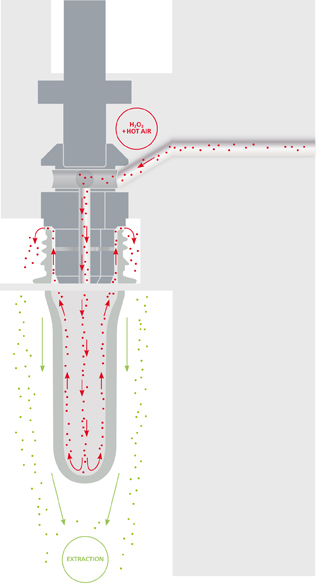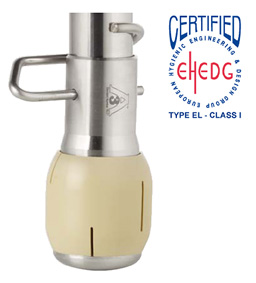Various methods for disinfection of equipment coming into contact with product are used in the beverage industry. In some instances, hydrogen peroxide is used but the success of sterilisation has to be validated using biological indicators such as Bacillus spores. These are very suitable as they have substantial resistance to chemical and physical environmental impacts. However, resistance may vary considerably. This contribution provides a critical evaluation of the reasons and describes potential approaches in order to standardise validation processes, using spores of Bacillus subtilis SA 22 as an example.
Shelf life of filled products nowadays requires compliance within the framework of an ambitious common goal of quality assurance. However, the only way to achieve this is to adhere to a comprehensive hygiene programme in unit operations. But this is just one side of the coin as, on the other side, hygiene is often not accorded due attention in some operations following the motto: “everything has gone well so far”.
Brewers are said to be world champions in cleaning. However, when taking a closer look at some breweries, it is readily obvious that this isn’t always the case. Cleaning and disinfection is a core process in beer brewing. Brewers will recognise the consequences of deficient cleaning at the latest when first complaints about hazy or spoiled beers come in. But what’s the secret of a good cleaning and disinfection routine?
Biofilms or organic materials remaining after cleaning can be detected using swabs and suitable nutrient media, as well as with the ATP measurement method [1, 2]. In order to visually check the efficiency of the installed internal cleaning system also “just-in-time”, a conventional retention or spray shadow test has been carried out for some years during commissioning, acceptance testing and revalidations, in addition to microbiological swab sampling. The composition of the media applied has been continuously developed further since their first use in 2002 (table 1) [3, 4, 5, 6]. In the context of a doctoral thesis, a new test medium [8] has now been developed, one that cannot be utilised by beverage-spoilage micro-organisms.
Using examples from commercial operations, technologies are described here which make it possible to achieve a significant cost reduction in industrial hygiene, while simultaneously assuring product quality.
With its new method of sterilizing preforms in advance, KHS now eliminates the need for classic upstream PET bottle sterilizing and rinsing. The significantly smaller area of the preform to be sterilized compared to that of the PET bottle surface reduces the required amount of sterilant considerably. This contributes not only to saving the cost of investment in a rinser but also saves rinse water.
Ozone, a highly reactive compound, is used both for cleaning as well as for disinfection in various areas of water treatment or food production. The following article deals with current processes used in ozone generation and their technical applicability.
Tank hygiene is critical to producing products of consistently high quality. Choosing the right tank cleaning technology contributes to higher quality, fewer disruptions, higher yield and greater profitability. Switching to dynamic rotary jet head technology can prove to be a worthwhile investment. Most breweries want to achieve the highest level of tank hygiene using the lowest possible amount of energy and cleaning fluids. To do so, it is important to understand the pros and cons of static spray ball technology and rotary jet head technology, which are described in this article.
The GEA Group enlarges its segment for mechanical equipment in the business unit Flow Components by acquisition of the British company Breconcherry Ltd., manufacturer of tank washing equipment and cleaning in place (CIP) systems, located in Ledbury, UK.
Chlorine dioxide was selected as an alternative sanitizer based on its known anti-microbial effectiveness over wide range of pH and temperature, further more chlorine dioxide does not produce tri halo methane or chloro phenolic by products, an important environmental consideration. Siello2 Dioxide two component system is a product to generate pure Chlorine Dioxide onsite.
The Alfa Laval Toftejorg SaniMidget SB UltraPure rotary spray head is the first tank cleaning machine of its kind to be certified by the European Hygienic Engineering Design Group (EHEDG) for use by the food industry. The launch shows that Alfa Laval continues to lead the way within hygienic processing and food safety.




